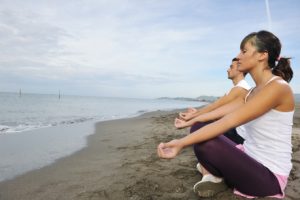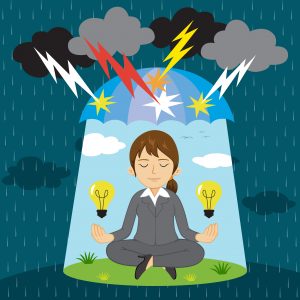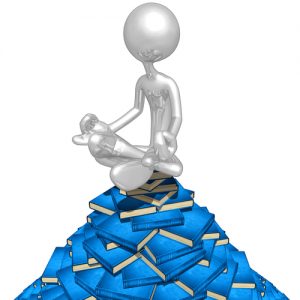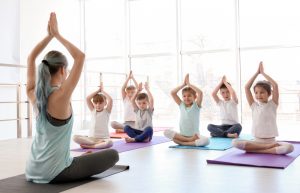Individuals who experience chronic stress can also experience physical ramifications. The body when stressed is induced to react to stress. In doing so, the body through various hormones can increase blood pressure, muscular tension and alertness to react to the stressor. This is critical to survival in itself and when one can react with a fight or flight response, one is able to avoid or confront the stressor. Once the stressor is removed or conflict is avoided or defeated, the body naturally returns to pre stress levels.
The constant issue in modern society is that people cannot fight or flee everything. Jobs and relationships demand other ways to resolve stressful issues. If one is constantly besieged with stress and unable to properly cope with it, then the body is in an constant reaction to stress. This has shown in the long term to cause damage to the body, most notably the arteries and heart. Stress can kill over time and it is important to be able to regulate one’s response.

Fortunately, through study and bio feedback, it has been shown that one with training can better react to stress and also lower the body’s reaction to stress. Primarily through meditation and other Eastern arts, one is able to learn to breathe properly when confronted with stress and to lower one’s reaction to it. In fact after a stressful encounter, one can be taught to use the relaxation response to lower one’s bodily functions to pre stress levels.
Meditation, breathing, hypnosis and other alternative tools can be utilized to learn to control one’s inner response to stress but this takes commitment and training. It has been studied that Transcendental Meditation, Zen Yoga, Autogenic Training, and Progressive Relaxation had similar with some variable responses to oxygen consumption, respiratory rate, heart rate, muscle tension, blood pressure and alpha waves.
Dr Hess in the later part of the 20th century was the first to distinguish the effects of meditation on the body. He came to the conclusion that many meditation practices create the opposite reaction as the body’s fight or flight response to stressors. Meditation hence has a great ability to physiologically alter the body’s reaction to stressors as well as return the body to pre stress conditions.
Another amazing element discovered was that meditation, like sleep, lowers oxygen consumption. Not even sitting calmly can lower this consumption like sleep, but what was discovered proved that meditation lowers consumption within minutes as compared to hours with sleep. Also, alpha waves in the brain remained constant during meditation unlike sleep. Meditation thus proved to be a great way to reduce the body’s flight or flight response and even as a way to prevent future stress reactions. The studies did point out that while meditation is important in reducing stress it nonetheless did not replace the necessity of the body’s need for sleep and the benefits of REM.
If you would like to learn more about Stress Management as well as meditation then please review AIHCP’s Meditation Instructor Program as well as AIHCP’s Stress Management Consultant Program. Both programs are online and independent study and open to qualified professionals seeking to earn a four year certification.










